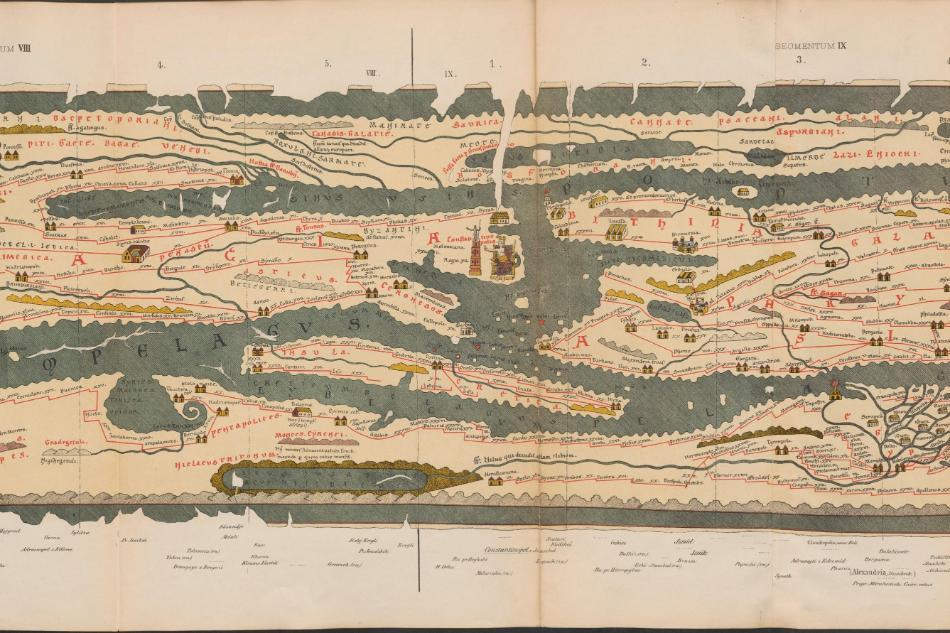Centre for Studies in the Late Ancient World (CS-LAW)
Tabula Peutingeriana, 1-4th century CE. Facsimile edition by Konrad Miller, 1887/1888
Context
Having long been dismissed as a period of ‘decline and fall’ of classical Greco-Roman culture, Late Antiquity has undergone a profound revaluation during the last couple of decades. The study of Late Antiquity has evolved as a research field in its own right, which foregrounds the dynamic and formative character of a period in which Europe and the Middle East saw political, social, religious, and cultural transformations that shaped their trajectory for the centuries to come. Recent research has not only broadened the temporal limits of Late Antiquity, spanning the period from c.200–c.1000 CE, to highlight more long-term developments, but has also pushed the geographical focus further east into Eurasia and Africa as an alternative to more traditional Eurocentric perspectives. Research in Late Antiquity explores the disintegration of the Roman Empire and the formation of new, more fragmented, political entities in Europe, Africa, and the Middle East; it investigates the rise, spread and institutionalisation of new monotheist religions (Christianity and Islam); and it assesses societal changes that profoundly reshaped the composition and organisation of communities. In addition, the last few years have seen a proliferation of scientific approaches that have contributed to advance research on environmental history (the late antique ‘little ice age’) and the study of disease (the ‘Justinianic plague’).
Aim of the Centre
Study of the period c.200–c.1000 CE has become a significant area of strength at Durham in recent years. The Centre for Studies in the Late Ancient World supports, develops, and enhances a wide range of multi- and interdisciplinary activities in this field. By focusing on the late ancient world rather than ‘late antiquity’ it will have a distinctive global approach, connecting with areas such as East Asia.
Studies in the Late Ancient World are inherently multi- and interdisciplinary, partly by nature of the surviving source material and partly because of the way in which the period is conceptualised, studied, and taught. The Centre promotes collaborative engagement between researchers from the Faculty of Arts and Humanities, the Faculty of Social Sciences and Health, and the Faculty of Sciences, with the aim of consolidating and expanding Durham’s international profile in this area.
The Centre hosts regular reading groups and seminars with internal and external speakers; it offers support for major collaborative grant applications and impact activities and encourages applications for postdoctoral fellowships.


/prod01/prodbucket01/media/durham-university/research-/research-institutes/institute-of-medieval-and-early-modern-studies/23358-1.jpg)
